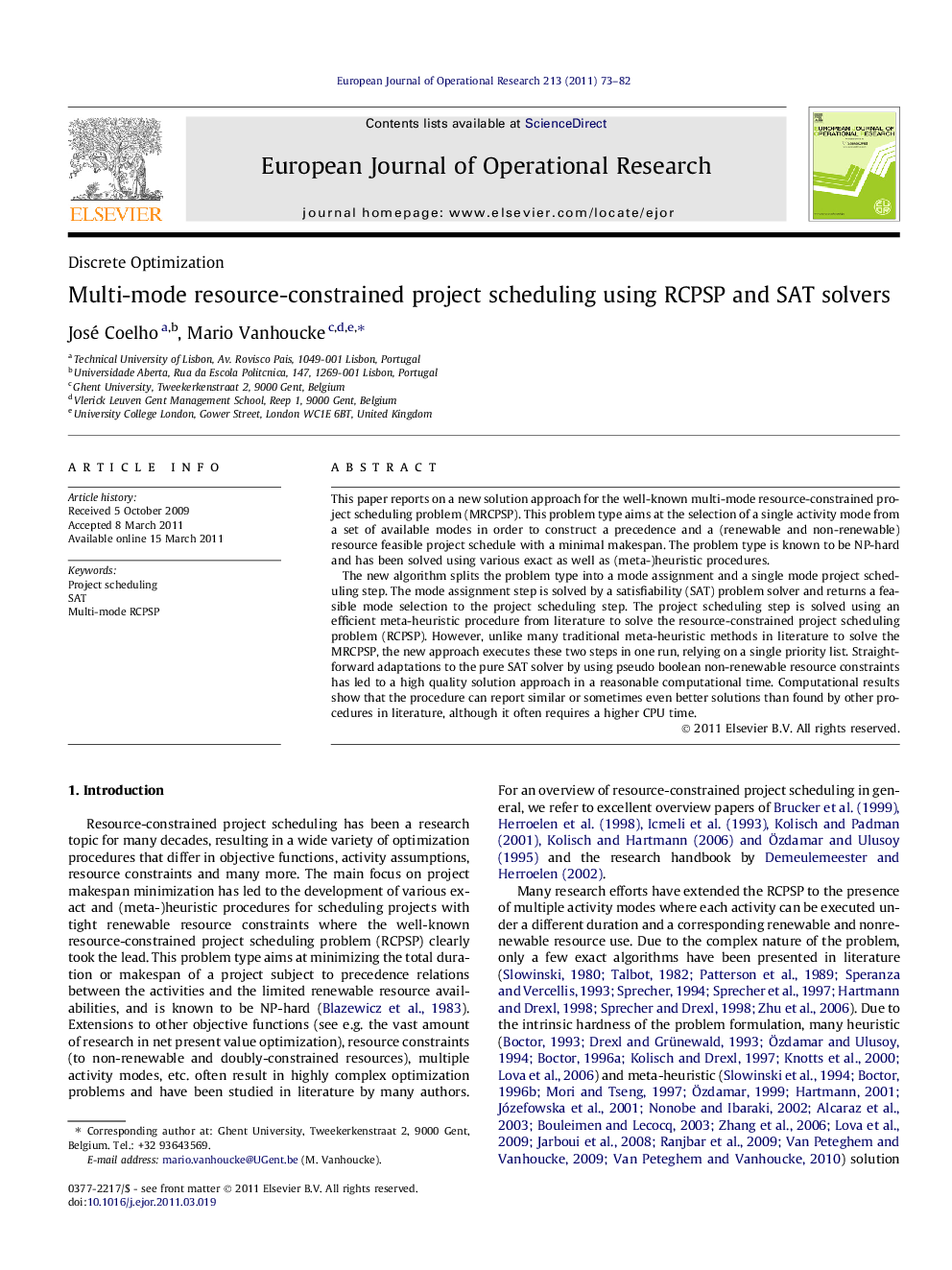| Article ID | Journal | Published Year | Pages | File Type |
|---|---|---|---|---|
| 480758 | European Journal of Operational Research | 2011 | 10 Pages |
This paper reports on a new solution approach for the well-known multi-mode resource-constrained project scheduling problem (MRCPSP). This problem type aims at the selection of a single activity mode from a set of available modes in order to construct a precedence and a (renewable and non-renewable) resource feasible project schedule with a minimal makespan. The problem type is known to be NP-hard and has been solved using various exact as well as (meta-)heuristic procedures.The new algorithm splits the problem type into a mode assignment and a single mode project scheduling step. The mode assignment step is solved by a satisfiability (SAT) problem solver and returns a feasible mode selection to the project scheduling step. The project scheduling step is solved using an efficient meta-heuristic procedure from literature to solve the resource-constrained project scheduling problem (RCPSP). However, unlike many traditional meta-heuristic methods in literature to solve the MRCPSP, the new approach executes these two steps in one run, relying on a single priority list. Straightforward adaptations to the pure SAT solver by using pseudo boolean non-renewable resource constraints has led to a high quality solution approach in a reasonable computational time. Computational results show that the procedure can report similar or sometimes even better solutions than found by other procedures in literature, although it often requires a higher CPU time.
► A novel approach to solve the multi-mode resource-constrained project scheduling problem. ► The solution approach splits the problem into a mode assignment step and a single mode project scheduling step. ► The solution approach use only one priority list, instead of using an activity and a mode list as normally done in literature. ► The solution approach has the potential to solve numerous extensions to the well-known MRCPSP. ► The results are comparable to state-of-the-art procedures and even outperforms them when run times are set long enough.
